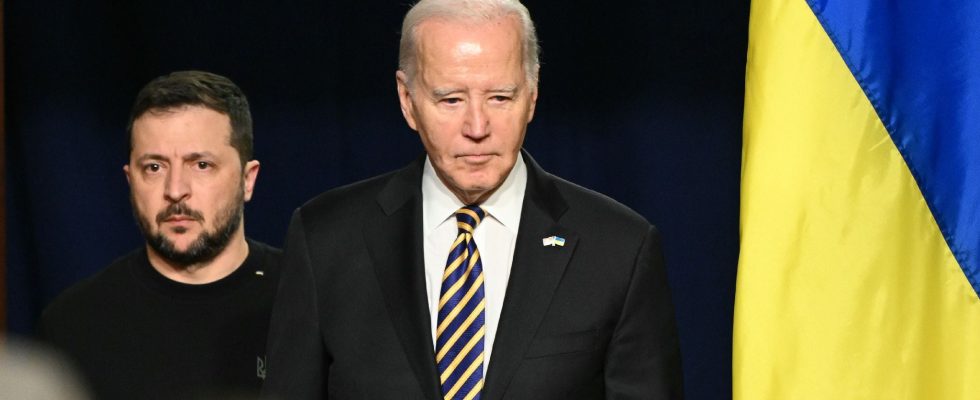After twenty-two months of fighting, suffering and devastation, the war in Ukraine has entered its most delicate moment. To the inconclusive counter-offensive led by kyiv in the fall were added the dissensions between Volodymyr Zelensky and his generalissimo Valeri Zalouzhny (regarding the organization of rotations of soldiers at the front) and a certain “war fatigue” in the West due to the increase in international tensions, in Palestine or the Red Sea. Pessimism is also fueled by Republican elected officials in the American Congress who are blocking a $61 billion aid package for kyiv. Last but not least, a possible electoral victory for Donald Trump in November could mean the freezing of the conflict, that is to say the de facto amputation of 17% of Ukrainian territory, currently occupied by Putin’s army. The hope that followed the victorious counter-offensive in Kharkiv in September-October 2022 has therefore faded. And long gone are the days when kyiv seemed able to reverse the course of events.
Hence the question: could it be otherwise? Yes, say the critics of the American administration, often Republicans for whom Joe Biden and Jake Sullivan, his national security adviser, are inclined to be too cautious. “The measures decided are the right ones, but it is always too little too late (too little, too late), regrets Eliot A. Cohen, ex-diplomat and anti-Trump Republican. “If we had given the Abrams M1 tanks, the ATACMS long-range artillery and the F-16 fighter planes requested by Kiev sooner, this war would undoubtedly already be won,” said this professor at Johns Hopkins University, who was the advisor to Secretary of State Condoleezza Rice in 2007-2009. The missiles would have made Crimea untenable for the Russians, who would have already collapsed, because each army, including the Russian, has its breaking point.”
Abusive criticism?
In fact, the West is asking the Ukrainians something that no NATO army would risk doing: going into combat without overwhelming air superiority. “That’s why I was disgusted to hear some in Berlin and at the Pentagon criticizing the way Ukraine is waging its war,” said General Ben Hodges. According to this former supreme commander of the American army in Europe, Biden lacks a vision: “His administration has still not clearly defined its strategic objectives. It seems that the United States just wants to avoid a military escalation with Russia and preserve what Ukrainian territory can be preserved in order to find ourselves in – I hate this expression – ‘the best possible negotiating conditions’.” And Hodges, who lives in Germany, concludes: “With such vague objectives, it is impossible to achieve victory.”
This ambiguity fuels defeatism, judges Christopher Nixon Cox, head of the Richard-Nixon Foundation, in California: “Biden does not want Ukraine to win, but just not to lose… He misses the determination of a true leader like my grandfather. He knew that the Russians are bluffers.” For those once called “hawks,” Biden’s level-headedness can be explained by his age. “Its reflexes date from the Cold War, from the time when the balance of terror governed everything,” continues Eliot A. Cohen in Washington. “It is software from the 20th century, inoperative in Ukraine.”
However, according to Jacob Heilbrunn, who runs the conservative geopolitics journal The National Interest, the criticisms against Biden are abusive. “Republicans portray him as a new Jimmy Carter [NDLR : réputé pour sa mollesse à l’international], but it’s wrong. On the contrary, the White House and the Treasury are pushing very hard so that the 300 billion dollars of frozen Russian assets are used to finance the continuation of the war in Ukraine.” Diabolically clever, because, in short, Putin’s money would finance the war in Kiev. Candidate Biden – who cannot afford a defeat in Ukraine – has undoubtedly not said his last word.
.
